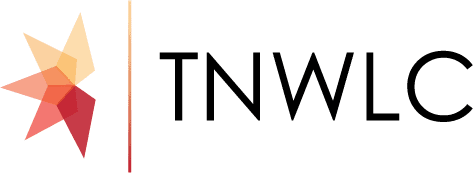HOA financial management can be quite complex. From planning budgets to handling taxes, it involves many moving parts. But with the right tools and structure, board members can ensure long-term financial health.
What is HOA Financial Management?
Homeowners association financial management refers to the planning, monitoring, and control of all financial activities within an HOA. This includes setting a budget, collecting dues, paying bills, funding reserves, and ensuring compliance with legal and accounting standards.
Every HOA, regardless of size, must handle money. This entails maintaining detailed records, ensuring transparency with homeowners, and making decisions in the best interests of the community. Boards are responsible for overseeing these activities and preserving property values.
Key Elements of HOA Financial Management
When it comes to HOA finances, there are a lot of responsibilities involved. Here are the most important components of the job.
1. Budget Planning
Each year, the board must prepare a budget that outlines expected income and expenses. This plan helps the board with spending, dues, and financial priorities.
The budget planning process involves reviewing previous financial reports, forecasting future costs, and factoring in inflation. Of course, the board should also consider the association’s needs. When setting the budget, boards should be realistic and conservative in their estimates.
Transparency matters, too. After finalizing the budget, the board should share it with homeowners. The board must also explain the expenses and any changes in dues at a budget meeting.
2. Dues Collection
Dues are the primary source of income for most HOAs. Boards must collect these dues on time and in full. Without these dues, the HOA would have no way of paying for costs.
A good financial plan should also include a policy for collecting dues and delinquencies. This policy should outline due dates, penalties for late payments, and steps for handling unpaid fees. Offering multiple payment methods is also a good way to ensure payments.
3. Payment Processing
An HOA relies on vendors for many of its needs. To maintain a high standard of service and a healthy working relationship with them, it’s important to pay vendors on schedule. The board should review these payments before they are sent out and maintain a record of all documentation.
4. Reserve Planning
Every HOA needs a reserve fund for future repairs and replacements. This includes roofs, paving, elevators, and other significant components.
Many HOAs are required to maintain reserves by their governing documents. Reserve studies may also be mandatory. In this case, a professional should conduct the study to help determine how much money the HOA should set aside each year.
5. Accounting and Bookkeeping
Section 42–1903.14 of the DC Condominium Act requires associations to keep detailed records of their financials. This demands a knowledge of proper accounting and bookkeeping practices.
Most HOAs use accrual accounting. With this method of accounting, boards record revenue and expenses when they are earned or incurred, respectively. This ensures a more accurate picture of the community’s financial status.
6. Financial Statement Preparation
Monthly and annual financial statements show the HOA’s financial position. These include a balance sheet, an income statement, and a budget comparison.
Board members must review these statements regularly. This will help them identify trends, catch errors, and make informed decisions.
Financial reports also promote transparency. Board members must share these reports with homeowners so that they are aware of the association’s financial performance.
7. Audits
Audits provide an independent review of HOA financial records. Some state laws or governing documents require annual audits, while others leave the decision to the discretion of the board. Even if there is no such requirement, the board should consider scheduling audits regularly to ensure accuracy and deter fraud.
A professional must conduct audits, not the HOA board. It is best to hire a Certified Public Accountant (CPA) familiar with the association’s financials. Additionally, the board should share the audit results with homeowners.
8. Tax Preparation
Associations must file annual tax returns with the IRS, usually using Form 1120 or 1120-H. Even nonprofit associations are subject to tax rules. Of course, many board members don’t know the first thing about tax preparation, requiring the help of an accountant or tax professional.
9. Internal Controls
Internal controls help protect the HOA’s money and prevent fraud. These include safeguards such as multiple signatures on checks, separation of duties, and restricting access to accounts.
Board members must also establish policies that limit financial risk. For example, the person who approves expenses should not also be the one writing the checks.
How to Evaluate HOA Financials
Board members must review HOA financials regularly. This helps ensure financial stability and transparency.
The process begins with a thorough review of monthly and yearly financial reports. These typically include the balance sheet, income statement, and budget-to-actual comparison.
The board should be vigilant for irregularities and excessive expenditures. To know if the HOA is in a strong financial position, these reports should show consistent revenue, balanced spending, and adequate reserve contributions. If there are any discrepancies between the budgeted and actual expenses, the board should investigate further.
Additionally, the board should pay attention to the association’s reserve fund levels. The current reserve balance must reflect the recommendations outlined in the most recent reserve study. If the HOA has underfunded reserves, it could signal financial problems and lead to special assessments in the future.
Another key metric to check is the delinquency rates. A high delinquency rate indicates that not enough owners are paying dues or the HOA is having trouble collecting them. When this happens, the association can encounter cash flow issues.
Professional Financial Management for HOAs
Not all board members possess the necessary background or expertise for effective HOA financial management. This is why many HOAs hire professional management companies to handle this aspect of the job. Most management companies offer financial oversight as part of their full package or as a separate service.
With professional management, HOAs can expect reduced errors, streamlined processes, and compliance with legal requirements. Of course, this doesn’t mean that the company gains decision-making authority. That power remains in the hands of the board. The company or manager will likely require the board’s approval for large expenditures.
The Bottom Line
When it comes to overseeing communities, HOA financial management plays an integral role. Board members must understand the intricacies of managing finances and learn how to interpret financial documents effectively. If necessary, the board should also consider hiring professional services.
TNWLC offers HOA financial management services to homeowners associations, condominiums, and cooperatives in Washington, DC. Call us today at (202) 483-8282 or contact us online to get started!



